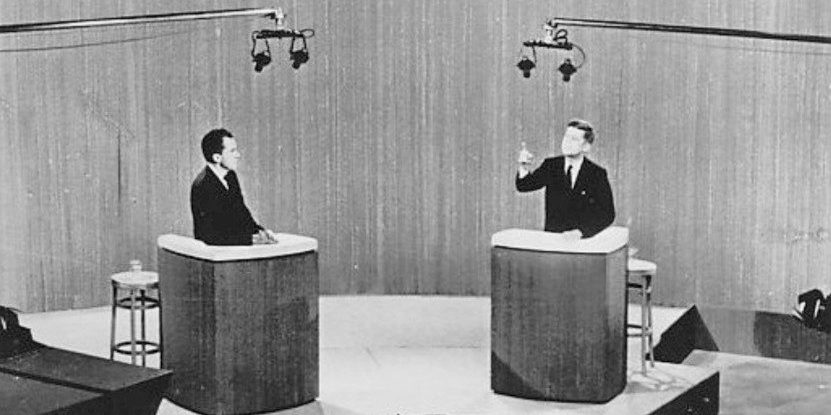The Questions Matter
I watched the Democratic primary debate from Las Vegas last night. I don’t know if what we saw was good for Democrats, good for Republicans, or good for the country. I know politics is fierce. It’s bare-knuckled. It’s theatrical. And last night’s debate had its fair share of drama.
But there are so many issues worthy of a national discussion that I’m mystified why debate moderators don’t ask better questions, bigger questions, more meaningful questions that will give us a better chance to glimpse the intellectual curiosity and readiness of those who would lead us and give us a sense of the kind of president any one of these candidates would be.
Now, I realize that complaining about debate moderators is almost as ancient a past-time as complaining about referees in sports. So I went and pulled the debate transcripts of a few presidential debates over the last 60 years to see if I was just particularly curmudgeonly during last night’s debate or if, in fact, we can do better.
Let’s just take one example: the final Nixon-Kennedy debate from October 21, 1960.
The very first question was to Vice President Nixon from radio newsman Frank Singiser. He asked about U.S.-Cuba relations and, specifically, “in what important respects do you feel there are differences between you, and why do you believe your policy is better for the peace and security of the United States and the Western Hemisphere.”
Tonight, in contrast, the moderator played gotcha with Senator Amy Klobuchar over her inability to recall the name of Mexico’s president in an interview last week. How much more meaningful would it have been if the moderator had asked candidates about their respective plans for “the peace and security of the United States and [its neighbors in the] Western Hemisphere?” That might have inspired a conversation about border security, international engagement, the value of diplomacy, trade, and international aid. It might have given us insight into how each of the candidates would represent the United States on the world stage.
In 1960, the ABC network’s John Edwards asked the first question to Senator Kennedy. He wanted to know who Kennedy would appoint to his cabinet. Both Kennedy and Nixon refused, wisely, to put forward names in the midst of a campaign. Still, a similar question asked tonight might have drawn a contrast with the current president who has said he favors so-called “acting” members of his cabinet because they give him greater independence from congressional oversight. On a day when President Trump named his new, acting Director of National Intelligence, this question could have provided key insights about how the field of Democrats would approach building their cabinet and explore their relative respect for the Senate’s Constitutional roll in confirming cabinet secretaries.
When NBC’s John Chancellor asked his first question of the debate in 1960, it was about how the United States would respond to a resumption of nuclear testing by the Soviet Union. In 1960, this was an urgent issue, and both candidates responded with a serious reflection about the need for negotiation with the Soviets. Today we face a wealth of urgent issues. Consider China’s growing power around the world. While the United States has been fighting costly wars since 2001, China has been quietly expanding power, resources, and relationships across Asia, Europe, and Africa. Or consider the transformational potential of technology—whether we’re talking about genetic engineering, robots, or artificial intelligence. We should care more about the next president’s familiarity with these issues and whether they are prepared to offer thoughtful leadership on complex and potentially dangerous issues than with the number of homes any candidate owns.
This is going to be a long, primary fight and there will be many more presidential debates in this cycle. We need the moderators asking questions on these stages to focus on things that really matter and not lose us in the noise of personal attacks.

